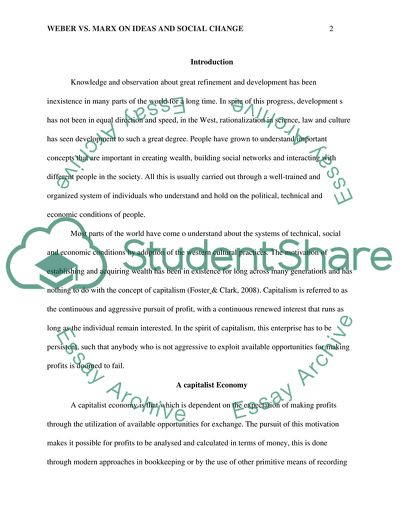Cite this document
(Weber Against Marx on Ideas and Social Change Research Paper Example | Topics and Well Written Essays - 1500 words, n.d.)
Weber Against Marx on Ideas and Social Change Research Paper Example | Topics and Well Written Essays - 1500 words. https://studentshare.org/sociology/1825706-weber-vs-marx-on-ideas-and-social-change
Weber Against Marx on Ideas and Social Change Research Paper Example | Topics and Well Written Essays - 1500 words. https://studentshare.org/sociology/1825706-weber-vs-marx-on-ideas-and-social-change
(Weber Against Marx on Ideas and Social Change Research Paper Example | Topics and Well Written Essays - 1500 Words)
Weber Against Marx on Ideas and Social Change Research Paper Example | Topics and Well Written Essays - 1500 Words. https://studentshare.org/sociology/1825706-weber-vs-marx-on-ideas-and-social-change.
Weber Against Marx on Ideas and Social Change Research Paper Example | Topics and Well Written Essays - 1500 Words. https://studentshare.org/sociology/1825706-weber-vs-marx-on-ideas-and-social-change.
“Weber Against Marx on Ideas and Social Change Research Paper Example | Topics and Well Written Essays - 1500 Words”. https://studentshare.org/sociology/1825706-weber-vs-marx-on-ideas-and-social-change.


